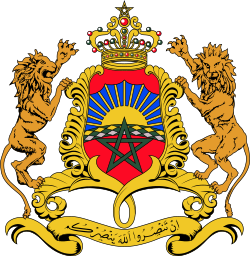| Constitution of Morocco | |
|---|---|
 The 2011 Moroccan constitution (in French, .pdf file) | |
| Overview | |
| Jurisdiction | |
| Created | June 17, 2011 |
| Presented | July 1, 2011 |
| Date effective | July 30, 2011 |
| Head of state | Mohammed VI |
 |
|---|
The Constitution of Morocco is the Basic Law of the Kingdom of Morocco. [1] The constitution defines Morocco as an Islamic constitutional monarchy and lays out the fundamental rights of Moroccan citizens, it also defines the basis and structures of government, the council of ministers, and the parliament. [2]
Contents
The first Constitution of Morocco was adopted in 1962, 6 years after the country regained independence. From and following that event, the King Mohammed V worked for the establishment of political and constitutional institutions. The National Advisory Council originally created the legislation text governing public freedoms and freedom of expression, known as the Dahir, which was enacted on November 15, 1959. In 1960, the Constitutional Council was established, and the first Constitution was proposed on November 18, 1962. This draft was ratified through a referendum on December 7, 1962, and was finally promulgated one week later, on December 14.